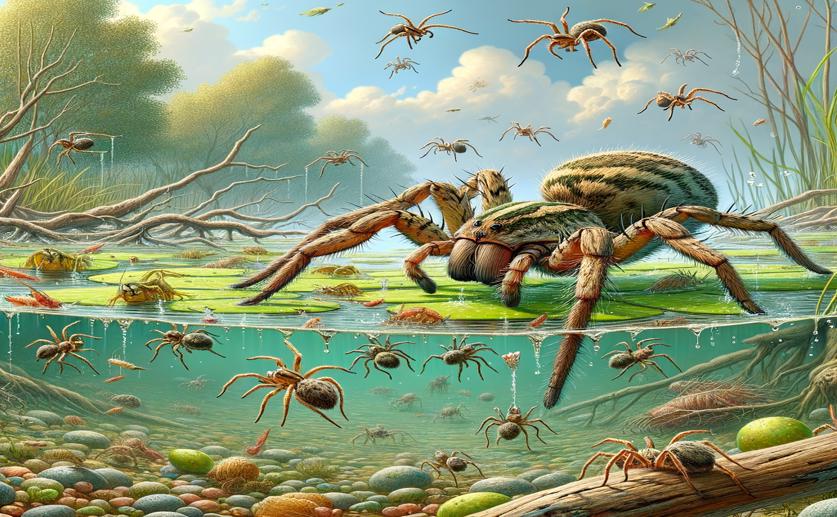
Shrinking Freshwater Habitats May Change Diets of Common Wolf Spiders
Greg Howard
18th May, 2024

Image Source: Natural Science News, 2024
Key Findings
- The study took place in western Greenland and focused on the wolf spider Pardosa glacialis
- Near ponds, there were 3.7 times more ground-dwelling prey compared to upland areas
- Aquatic insects made up about 23% of the diet of P. glacialis near ponds, but nearly 0% in upland areas
EnvironmentEcologyAnimal Science
References
Main Study
1) Declining freshwater habitats in Greenland may shift diets of the ubiquitous wolf spider Pardosa glacialis
Published 17th May, 2024
https://doi.org/10.1007/s00300-024-03259-4
Related Studies
2) A basal aquatic-terrestrial trophic link in rivers: algal subsidies via shore-dwelling grasshoppers.
3) Consumer-resource dynamics in Arctic ponds.



 23rd February, 2024 | Greg Howard
23rd February, 2024 | Greg Howard